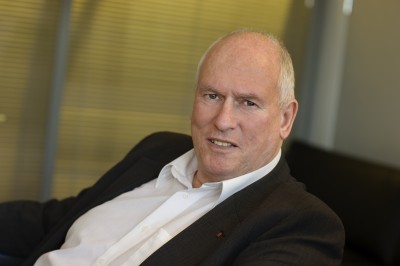The annual round of pay-related negotiations between Norway’s trade union federations and the national employers’ organization begins this week, with both sides hoping to reach a negotiated agreement before the April 1 deadline.

Norwegian media were predicting a relatively calm negotiation period between the Norwegian Federation of Trade Unions (Landsorganisasjonen, LO) and the Confederation of Norwegian Enterprise (Næringslivets Hovedorganisasjon, NHO), although there are still issues that could necessitate the involvement of state arbitration. This year’s negotiations occur midway through the 2010-2012 period, meaning that only the issue of wages is officially on the table.
The so-called mellomoppgjør only involves the national representative organizations, and not individual unions or employers. Negotiators have until April 1 to discuss their respective demands and agree a settlement, after which the state arbitrators would be required to intervene. LO has already underscored its desire to avoid mediation, with leader Roar Flåthen telling Aftenposten that they “are very much set on a negotiated settlement.” Another national trade union federation, the Confederation of Vocational Unions (Yrkesorganisasjonenes Sentralforbund, YS), will also undertake direct negotiations with NHO.
‘Freeze real wages,’ say employers
There has been much debate over the negotiations, with employers determined to avoid large wage increases. In February, NHO Director-General John G Bernander called for a freeze in wages this year in order to ensure the country’s international competitiveness, something which was angrily rejected by unions, who countered by calling for a freeze in executive wages that have also risen sharply in recent times. Research suggests that Norwegian workers earn on average 43 percent more than those in countries with which Norway principally trades. Real wages in Norway have increased 28 percent between 1999 and 2009.
Earlier this month, the leader of the Federation of Norwegian Industries (Norsk Industri), Stein Lier-Hansen, suggested to newspaper VG that a small 50-øre per hour increase in wages (less than 10 cents) would be sufficient to keep pace with inflation at 1.5 percent. The committees that deliver statistics for the wage negotiations disagreed with Lier-Hansen’s assessment of inflation (which is predicted to be closer to 2 percent), and the unions are believed to see a 1-krone increase per hour (less than USD 0.20) as the absolute minimum acceptable. Many commentators expect a general wage increase of between 3 and 4 percent.
Employers have also recently angered trade unions with calls for a minimum wage to be set by Parliament, something which the unions believe would undermine workers’ rights to collectively bargain through unions.
Low-paid women prioritized
LO leader Flåthen told Aftenposten that the unions’ priorities during the negotiations would be the low-paid and the issue of equal wages – meaning a particular focus on low-paid women. “We want to prioritize low-paid women in this year’s settlement,” said Flåthen. “This will contribute to reducing pay differences between women and men. Equal pay is also concerned with the fact that many women with higher education do not receive the same payment for their qualifications as men.”
Commenting on the issue of temporary workers – which has been highlighted by the ongoing revelations around employment agency Adecco’s working practices -Flåthen is clear that “the use of temporary workers can, at its worst, undermine organized working life,” adding that “permanent employment should be the norm, the use of temporary workers should be the exception.” Flåthen’s comments came as Norway’s postal service, Posten Norge, announced that all agency workers would from now on be paid the same as permanent employees, a move welcomed by unions that had threatened strike action following the decision by Posten to enter into a new agreement with Adecco.
LO is also likely to use the opportunity presented by the negotiations to gain greater support from NHO for their efforts to tackle problem employers in a number of industries.
Views and News from Norway/Aled-Dilwyn Fisher
Click on our Readers Respond forum if you’d like to comment on this story.

